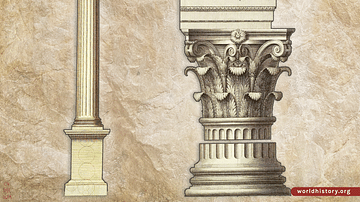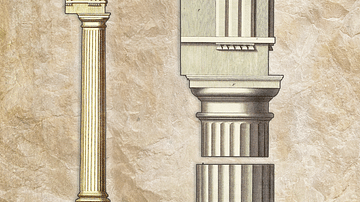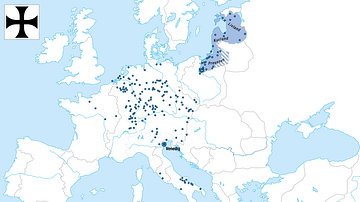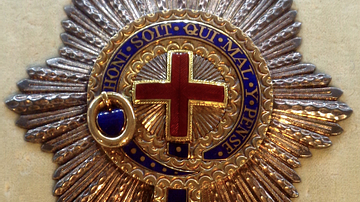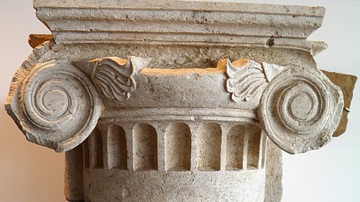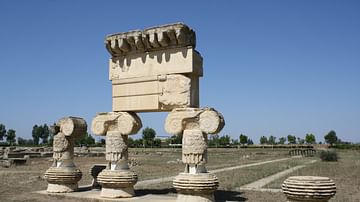Illustration
The Classical Orders of Architecture (Doric, Ionic, Corinthian, Tuscan, and Composite), originating in ancient Greece and refined by the Romans, are fundamental design principles that significantly influence classical and neoclassical structures. The Ionic Order, originating in the 6th century BCE, presents a distinctive design characterized by slender columns with fluted shafts and volute capitals. The incorporation of these elements in buildings adds an air of sophistication and refinement. Known for its graceful and elegant appearance, the Ionic Order reflects the artistic advancements of ancient Greek architecture.
About the Author
Cite This Work
APA Style
Netchev, S. (2023, December 12). The Ionic Order, Classical Orders of Architecture. World History Encyclopedia. Retrieved from https://www.worldhistory.org/image/18241/the-ionic-order-classical-orders-of-architecture/
Chicago Style
Netchev, Simeon. "The Ionic Order, Classical Orders of Architecture." World History Encyclopedia. Last modified December 12, 2023. https://www.worldhistory.org/image/18241/the-ionic-order-classical-orders-of-architecture/.
MLA Style
Netchev, Simeon. "The Ionic Order, Classical Orders of Architecture." World History Encyclopedia. World History Encyclopedia, 12 Dec 2023. Web. 19 May 2024.



